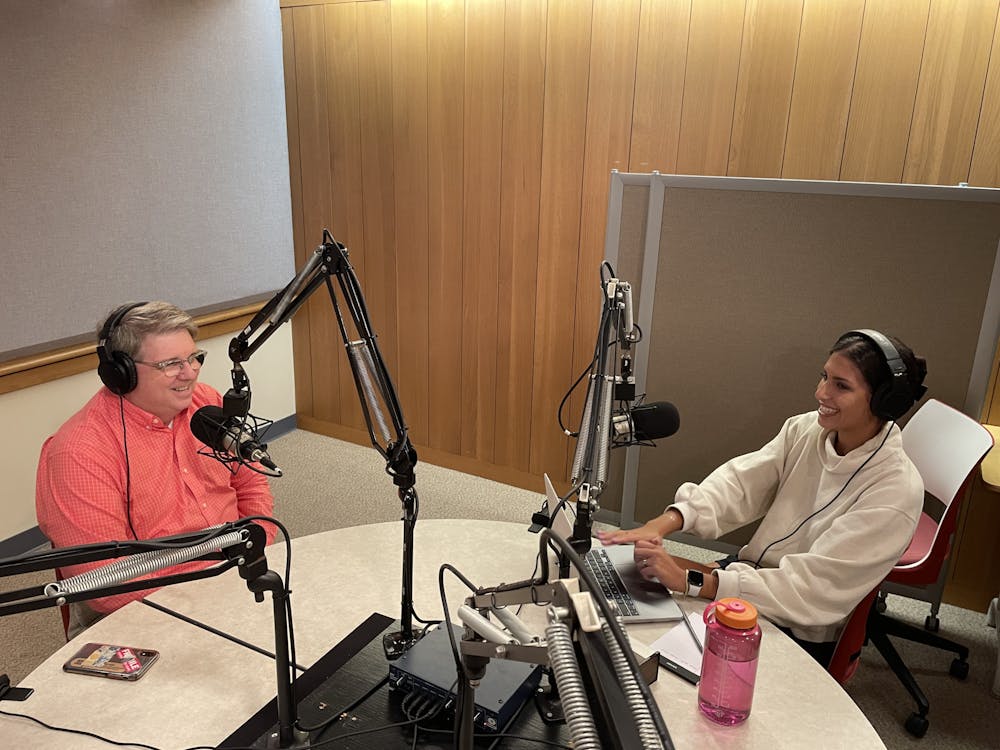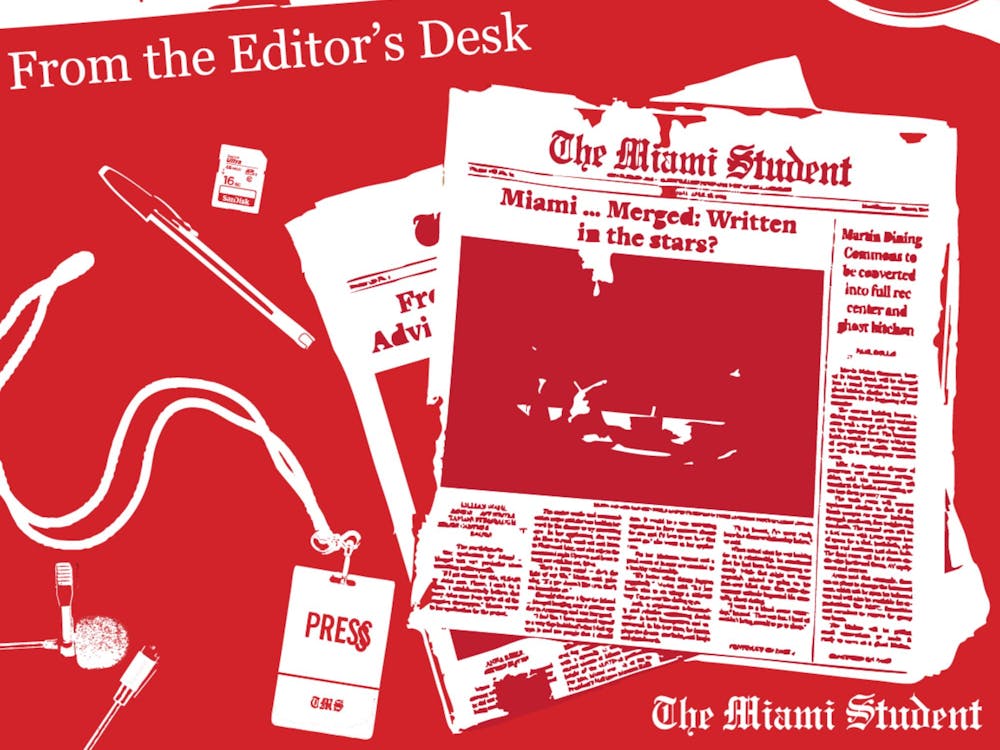The Miami Student’s podcast “People and Policies” focuses on Oxford’s local election cycle, featuring conversations with candidates about various issues relevant to students, faculty and residents.
On this episode, Staff Writer Olivia Patel sits down with Oxford City Council candidate Mike Smith. The two discuss affordable housing, assisting the homeless, environmental initiatives and economics here in Oxford.
Editor’s note: This conversation has been edited for concision. Listen to the podcast for the full conversation.
Patel: Tell me about yourself. How did you find yourself on Oxford’s City Council in the past?
Smith: I am a seventh generation Oxford resident. I was chairman of the city’s historic and architectural preservation commission from 2006 to 2013. From that, someone suggested I should be on city council, so I took the leap in 2013. I served two four year terms, the last two years of my second term being mayor.
Why did you decide to run again for city council?
We had started a lot of projects that I really wanted to see through. The last two years of my term were absorbed by the emergency of the pandemic. With encouragement from everyone, I decided to run again.
What were some of those projects you wanted to see through?
We started a huge sustainability initiative which included a carbon neutrality study for the City of Oxford. I want to see through projects like the city bike trail, charging stations, and a five megawatt solar ray.
How will you make those projects a reality?
The projects need to be supported with funding, whether that is outside funding from grants or donations or other funding. We also need to remain focused on a few projects each year that we really think we can finish.
Enjoy what you're reading?
Signup for our newsletter
How do you get the citizens on board with these projects?
We try to do a lot of listening sessions and get feedback from citizens. For example, we have a climate action committee which is mainly made up of citizens, so we take direction from them.
What are some initiatives this group (the climate action committee) has pursued?
This group has really pushed us to try and get to carbon neutrality by 2035. They are also pushing to get more hybrid vehicles in the city of Oxford. My vision is that all of the city vehicles are hybrid or electric, and the bigger vehicles would be hydrogen powered.
Moving on to the bike path, is the bike path currently laid down?
We are a third of the way done, but the final vision includes 12 miles of path laid down all around Oxford. It will completely circle Oxford. We are in our fourth phase, which will link the bike path from Peffer park to [Talawanda] High School. In the spring, the bike bath will go from [Talawanda] Middle School to the city park.
The bike path was originally a purely recreational trail, but eventually it will have spokes and links all over the city, so it will be easier for people to get around.
You have a strong focus on helping the less fortunate in the community. How do you plan on helping that demographic of people in Oxford?
We've done several things in the past, including emergency cold shelter in the winter involving giving families vouchers to stay in local hotels. We will try to pursue a shelter, in conjunction with producing housing for retired folks.
How would you get citizen support to pursue projects relating to the homeless problem in Oxford?
I think we really need to utilize social media. If those that are homeless were willing to have their photograph taken to be posted on social media, I think those photos would be worth 1,000 words.
How would you as a city council member support the needs of the lower income demographic in Oxford?
We are working really hard in conjunction with the TOPSS food pantry. We gave them money to get a refrigerated truck to get food to the city when people are unable to get to the pantry. We’ve also been working with the churches to try and coordinate different nights where the churches offer meals. We have been working with Holy Trinity, the Presbyterian church, and one more that escapes me.
Moving onto the economic side of Oxford. How do you plan on boosting economic development?
We’ve been doing really well by supporting businesses that are wanted by students, like a furniture store, but we lost six or seven businesses to the pandemic, including the furniture store and Pizza Hut. Our economic director is on the lookout for people looking to open a business in Oxford. We’ve also partnered heavily with Miami University to promote young entrepreneurs looking to open their business in Oxford. There will be two new restaurants coming to the city of Oxford opened by these young entrepreneurs.
Can you tell me about the new hotel opening on North Campus Ave.?
Yes, it will be … a 92-room hotel located on North Campus Avenue. The plan commission gave approval on the project, and the city council will look at the plans in October. Should the hotel be approved, Marriott would like to have the hotel up and running by next school year. Anything we can do to increase the number of beds in Oxford is definitely needed.
What are some other ways you guys are boosting the economy in Oxford?We do things like Red Brick Friday, where we pick one Friday a month in the summer and close High Street. We get food trucks and other vendors, as well as music events to get people uptown to support the uptown businesses. We are also trying to get the vacant spots on High Street redeveloped.
You faced recall when you were mayor during the pandemic for COVID-related things. How do you plan to come back from that?
When that happened, I lost my temper. I made statements about the student population, which I have since apologized for, and we had a great dialogue about it. Now, we have a better relationship in terms of approachability. Like I’ve said before, I can't fix a problem I don’t know about, and I will carry all of that experience of patience and outreach into this new position again.
What is the most important issue facing Oxford today?
I think it is the housing issue, because we talk a lot about homelessness and folks on a fixed income, but it affects the whole spectrum. It is very hard to find a house in any price range. We have gaps at all levels. We have very little fixed income housing, and no shelter for the homeless.




